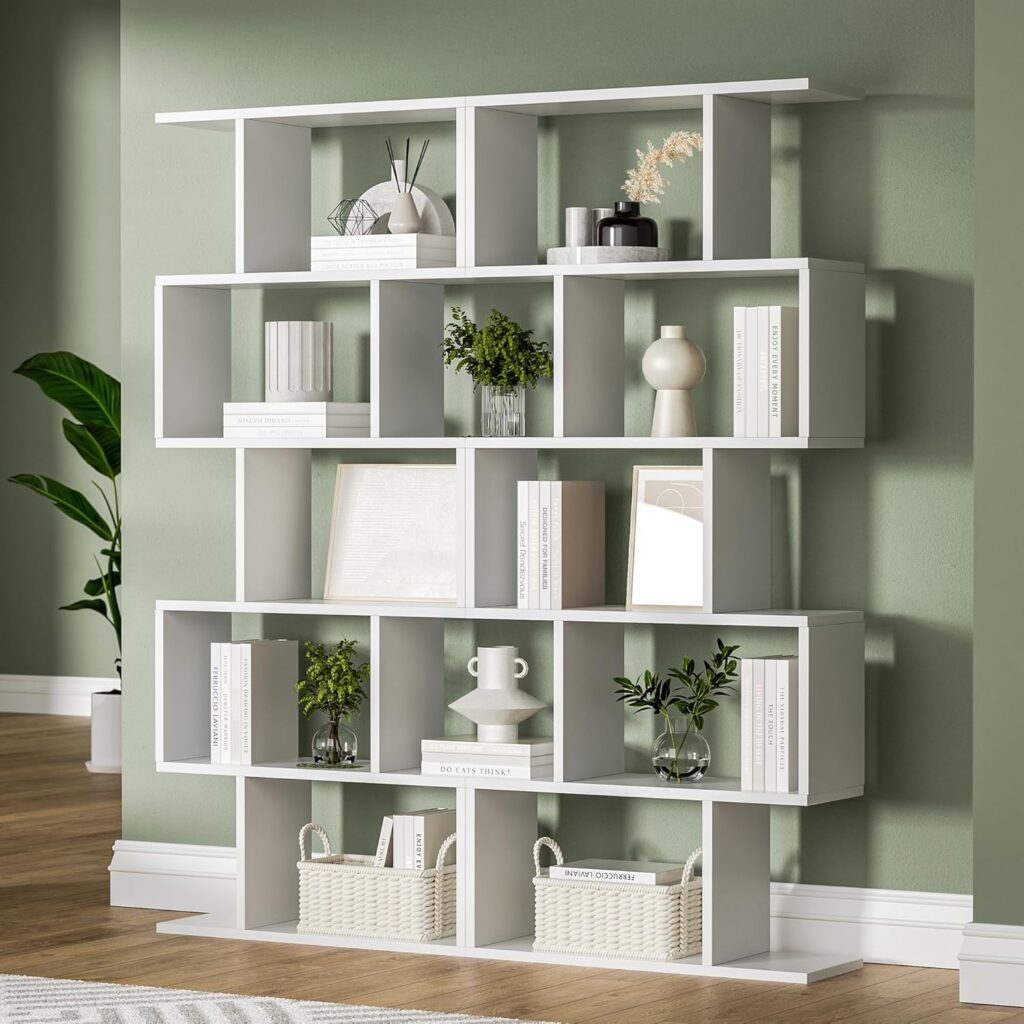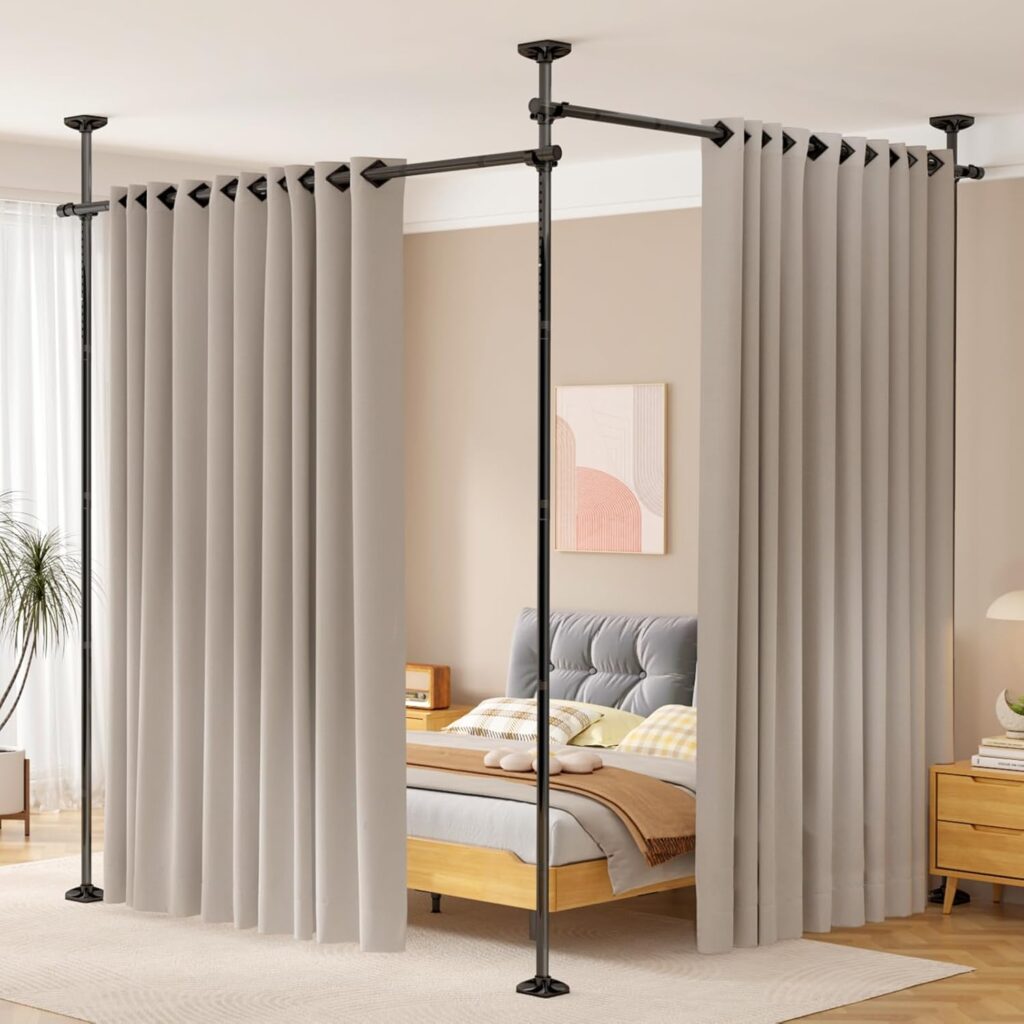Sibling Rivalry Solved: 8 Genius Shared Bedroom Ideas for Boy and Girl
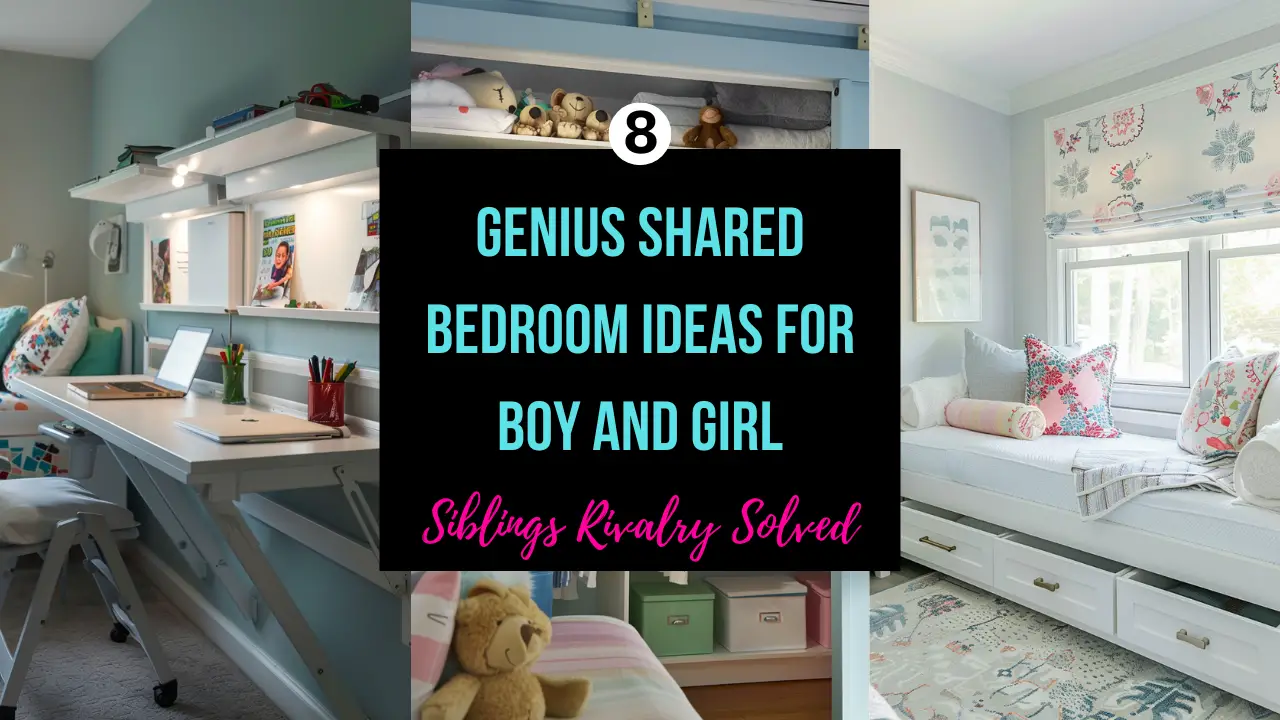
Sharing a bedroom can be a tricky situation for siblings, especially when they’re of different genders.
Boys and girls often have distinct preferences and needs, which can lead to conflicts in their shared space.
Creating a harmonious environment is crucial for fostering positive sibling relationships and ensuring each child feels comfortable in their room.
In this post I’ll present 8 genius ideas to transform a shared bedroom into a space that caters to both a boy and a girl.
These innovative solutions address common challenges and offer creative ways to divide space, personalize areas, and promote cooperation.
From clever storage hacks to multifunctional furniture, these ideas will help parents turn potential bedroom battlegrounds into peaceful retreats for their children.
Idea 1: Clever Room Divider Ideas
Room dividers can transform a shared bedroom, offering privacy without sacrificing space.
These solutions create distinct areas for each sibling while maintaining a cohesive look.
Bookshelf Dividers:
Bookshelf dividers serve dual purposes, creating separate zones while providing ample storage.
They offer customization options to reflect each child’s personality.
Different-colored backing or accessories can be used on each side of the shelves.
Curtain Separators:
Curtain separators offer a flexible solution, easily opened for shared playtime or closed for privacy.
Choose fabrics that complement the room’s decor and are easy to clean.
Ceiling-mounted tracks allow for smooth operation and a sleek appearance.
Idea 2: Loft Beds for Maximizing Floor Space
Loft beds offer an ingenious solution for shared bedrooms, effectively doubling usable floor space.
They create a vertical living arrangement, allowing for separate areas beneath the elevated sleeping quarters.
Different Loft Bed Configurations:
L-shaped loft beds provide individual sleeping areas while sharing a common workspace below.
Parallel loft beds maximize wall space and leave the center of the room open for shared activities.
Corner loft configurations utilize often-wasted space, creating cozy nooks for each child.
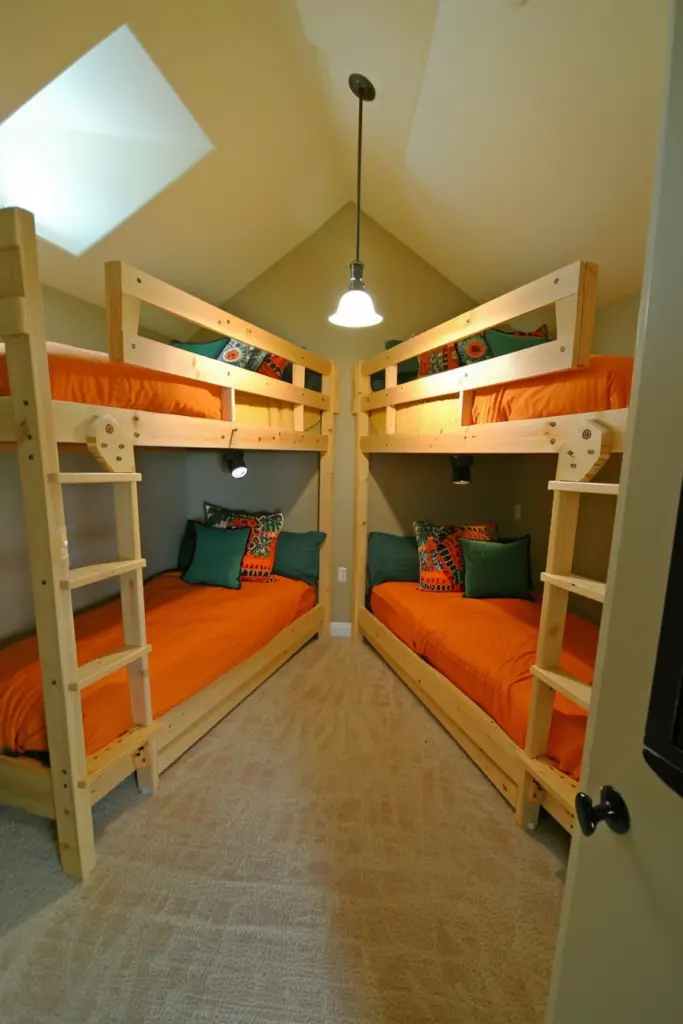
Safety Considerations:
Sturdy guardrails are essential to prevent falls and should be at least 5 inches above the mattress.
Ensure the ceiling height accommodates the loft bed with ample headroom.
Choose a ladder or stairs with non-slip treads for safe access.
Avoid placing loft beds near ceiling fans or light fixtures.
Regular inspections of all bolts and joints maintain the bed’s structural integrity over time.
Idea 3: Personalized Storage Systems
Personalized storage systems help maintain order and reduce conflicts in shared bedrooms.
These tailored solutions ensure each child has their own space for belongings.
Color-Coded Organization:
Assign each sibling a distinct color for their storage containers, hangers, and labels.
Use colored bins or baskets to sort toys, books, and school supplies.
Implement a color-coded calendar for shared spaces to manage schedules and chores.
This visual system simplifies organization and helps children take ownership of their possessions.
Individual Closet Spaces:
Divide the closet vertically with separate rods and shelving units for each child.
Install adjustable closet systems to accommodate growing needs and changing storage requirements.
Use closet door organizers or over-the-door hangers to maximize space for accessories.
Consider adding personalized nameplates or photos to clearly define each child’s area within the shared closet.
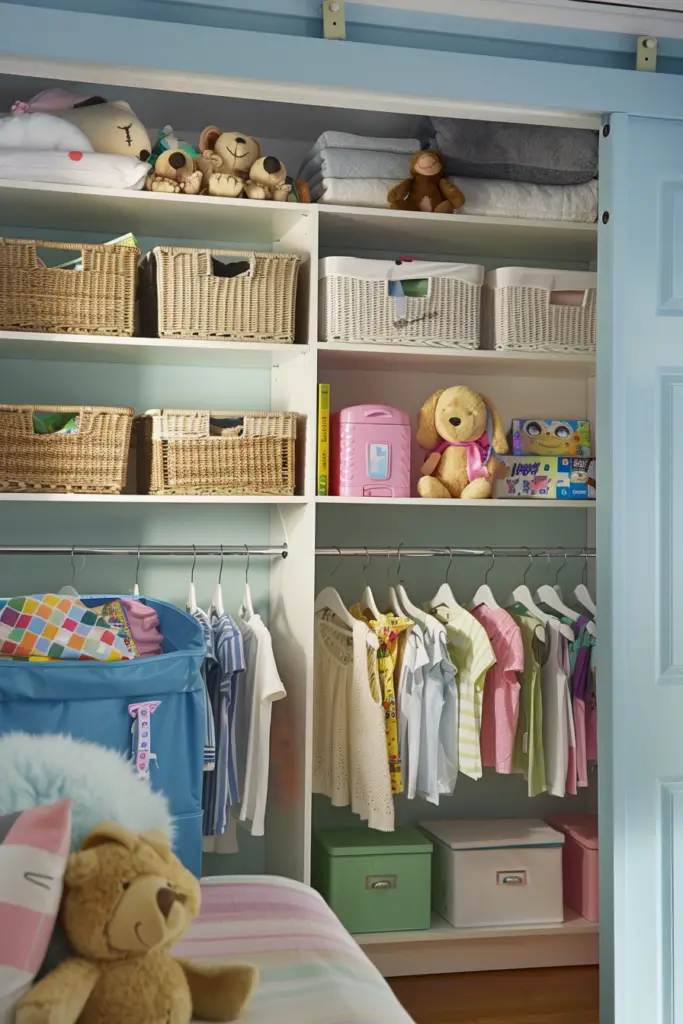
Idea 4: Create Individual Nooks
Individual nooks provide personal spaces within a shared bedroom.
These dedicated areas allow siblings to express their unique interests and personalities.
Reading Corners:
Transform a quiet corner into a cozy reading nook with a comfortable chair or bean bag.
Install floating shelves to display favorite books within easy reach.
Add soft lighting, such as a small lamp or string lights, to create a warm ambiance.
Incorporate a small rug to define the space and add texture to the reading area.
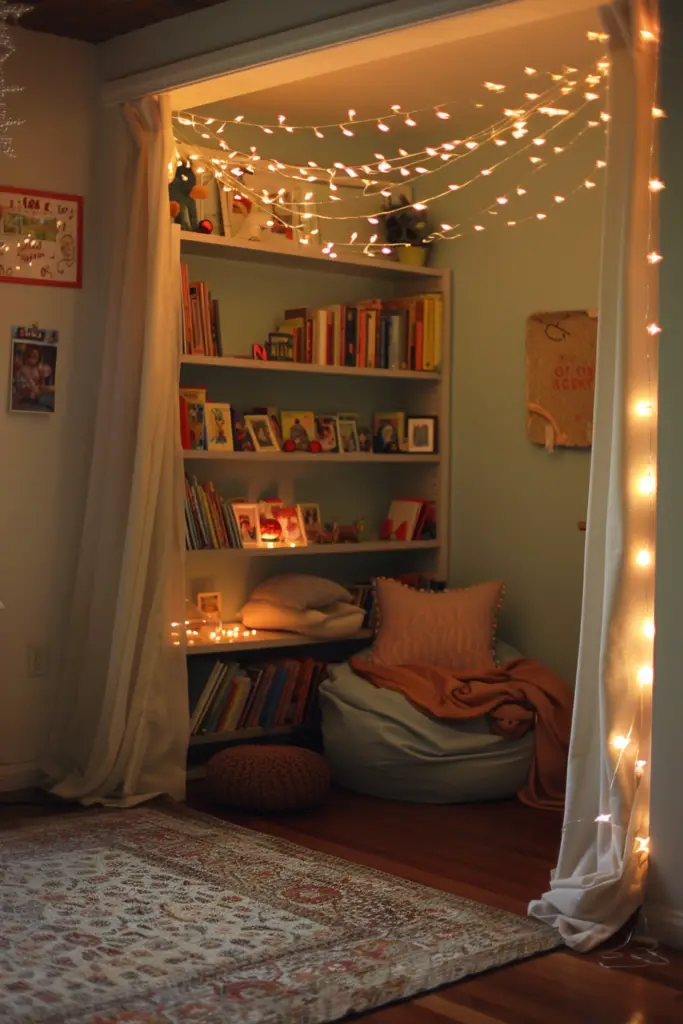
Hobby Areas:
Designate specific zones for each child’s hobbies or interests.
Set up a small easel or art table for the budding artist.
Create a music corner with instrument storage and a practice space.
Install a pegboard for displaying sports equipment or crafting supplies.
Use modular furniture that can be easily rearranged as interests change over time.
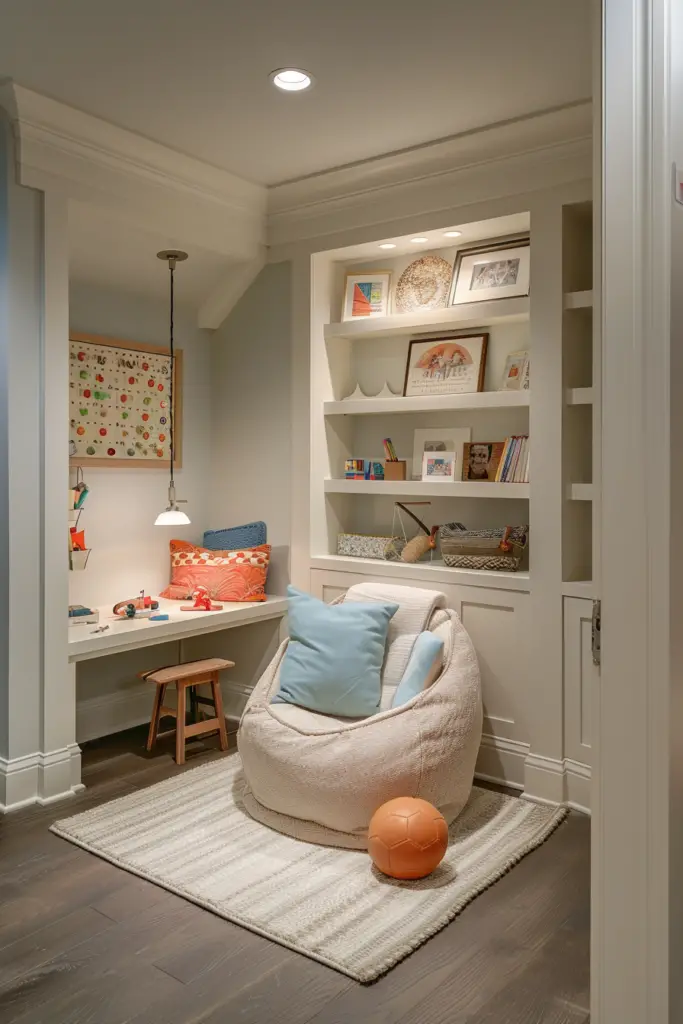
Idea 6: Customizable Wall Decor
Customizable wall decor allows siblings to express their individuality within a shared space.
These adaptable solutions provide flexibility and encourage creativity.
Magnetic Paint Sections:
Apply magnetic paint to designated wall areas for each child.
This creates an interactive surface for displaying artwork, photos, or school assignments.
Use colorful magnets to add visual interest and organize items—magnetic paint sections double as functional bulletin boards without damaging walls.
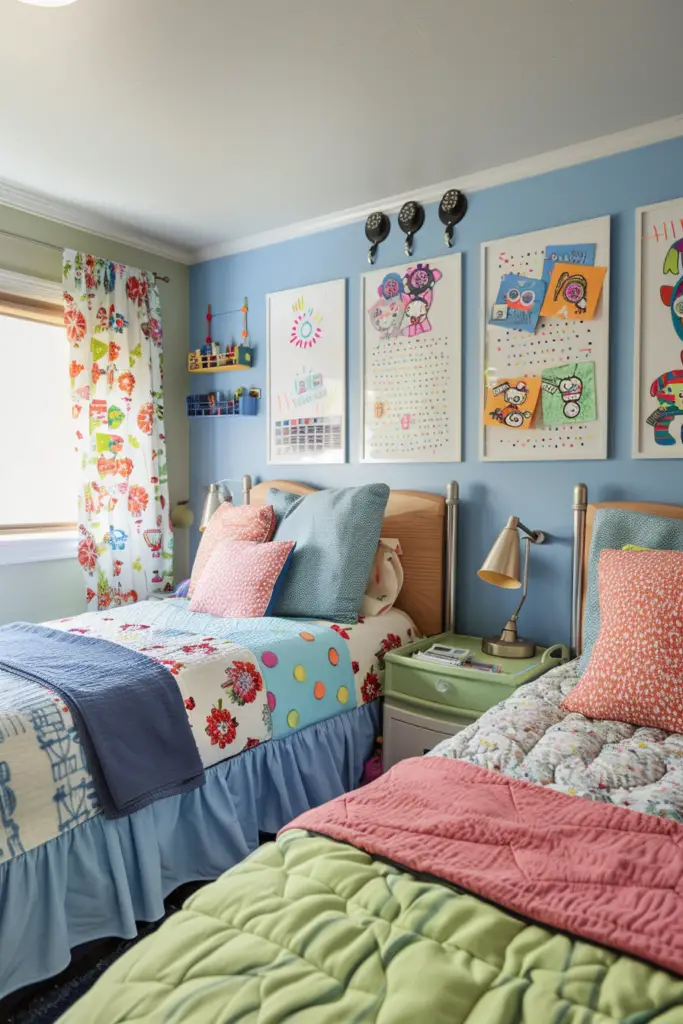
Interchangeable Art Displays:
Install a gallery rail system to easily swap out framed artwork or posters.
Create a rotating exhibition space with clipboards or pants hangers for displaying recent creations.
Use removable wall decals or stick-on wallpaper for temporary personalization.
Implement a schedule for changing displays to keep the room looking fresh and fair.
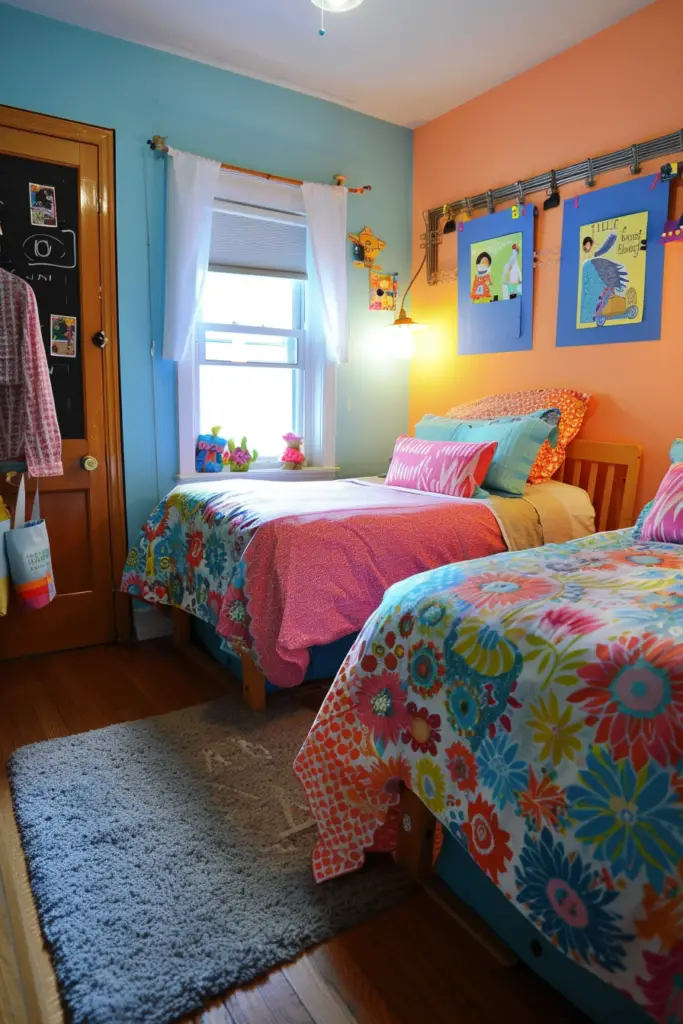
Idea 5: Individual Reading Lights
Individual reading lights provide personalized illumination in shared bedrooms.
These targeted lighting solutions allow one sibling to read or work without disturbing the other.
Wall-Mounted Lights:
Wall-mounted swing arm lamps save valuable bedside table space.
Adjustable sconces provide directional lighting for reading or studying.
Install dimmer switches on wall lights for customizable brightness.
Consider touch-activated wall lights for easy operation in the dark.
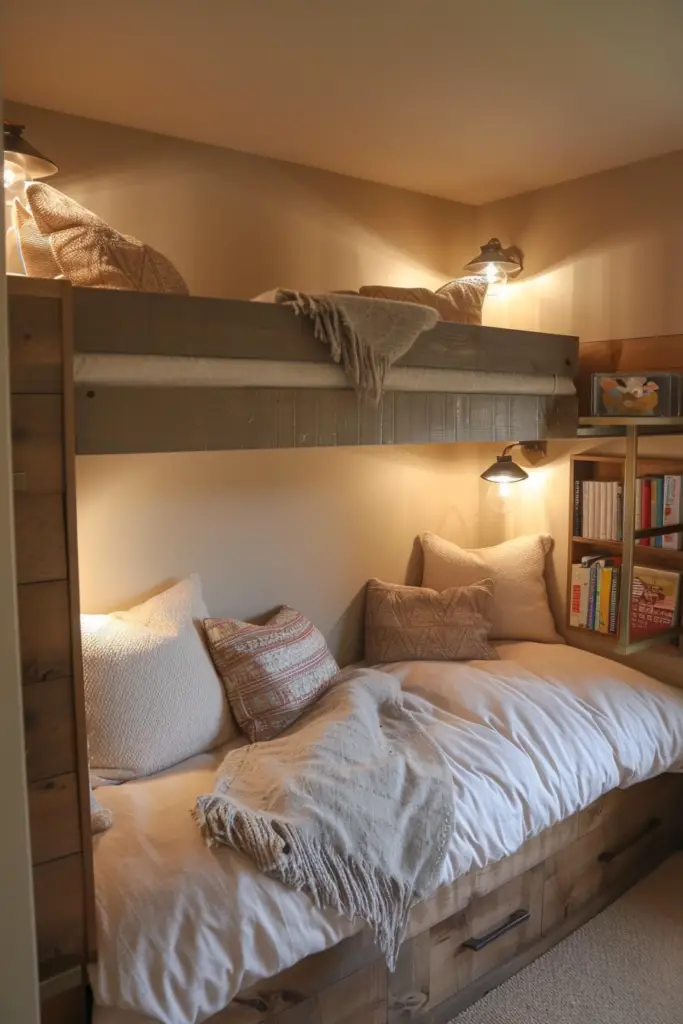
Idea 6: Convertible Daybeds
Convertible daybeds offer versatile solutions for shared bedrooms.
These multifunctional pieces adapt to changing needs throughout the day.
Seating by Day, Beds by Night:
Daybeds transform from comfortable seating to cozy sleeping spots.
Trundle options provide additional sleeping space when needed.
Some models feature built-in storage drawers for bedding or personal items.
Decorative pillows easily convert the daybed from bed to sofa.
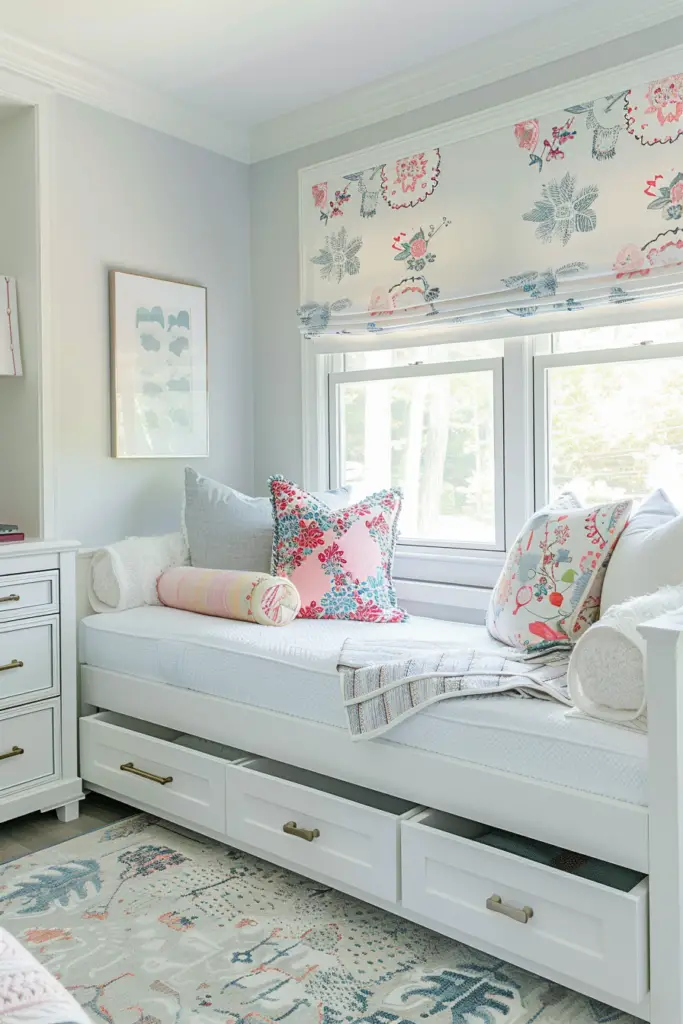
Idea 7: Fold-Away Desks and Tables
Fold-away desks and tables provide flexible spaces in shared bedrooms.
These space-saving solutions offer dedicated study areas without permanent space commitment.
Wall-Mounted Options:
Wall-mounted drop-leaf desks fold flat against the wall when not in use.
Some models include built-in shelving or bulletin boards for added functionality.
Install at different heights to accommodate each sibling’s needs.
Consider desks with integrated lighting for enhanced visibility.
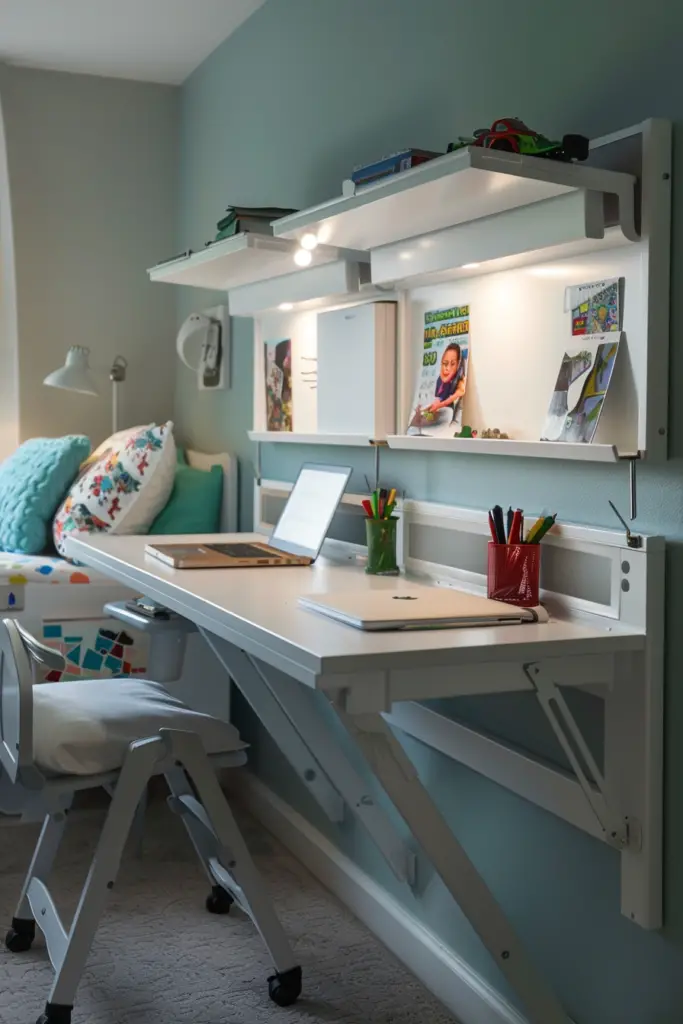
Portable Study Stations:
Rolling laptop desks allow for easy repositioning around the room.
Folding tray tables provide lightweight, storable work surfaces.
Lap desks offer comfortable studying options on beds or floor cushions.
Idea 8: Educational Tech Corners
Educational tech corners transform shared bedrooms into dynamic learning environments.
These areas blend technology with hands-on activities to enhance academic growth.
Dual-Screen Setups for Online Learning:
Install adjustable monitor arms for flexible screen positioning.
Use compact mini-PCs or laptops to save desk space.
Implement noise-cancelling headphones for distraction-free learning.
Consider a shared printer station with individual paper trays for the organization.
STEM-Focused Activity Stations Endorsed by Educators
Set up a portable microscope station for scientific exploration.
Include a math manipulation area with tangrams and geometric shapes.
Rotate STEM kits monthly to maintain engagement and cover various topics.

Conclusion
These 8 genius ideas transform shared bedrooms into harmonious spaces for boys and girls.
From clever room dividers to smart storage solutions, each concept maximizes space and minimizes conflict.
Implementing these strategies creates a balanced environment that respects each child’s needs.
Involve your children in the design process to ensure the space truly reflects their personalities and preferences.
With creativity and thoughtful planning, a shared bedroom can become a nurturing space for both siblings to thrive.
- 16 Funky Living Room Ideas to Bring Colors, Fun & Personality to Your Space - November 9, 2025
- 12 Small Bathroom Ideas on a Budget That Make Your Space Look Bigger & Stylish - November 6, 2025
- 20 Modern Boho Living Room Ideas That Are Cozy & Absolutely Stunning - November 2, 2025

